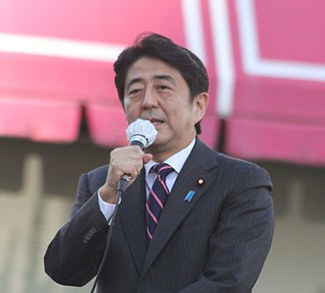FORECAST
The recent collapse of investment bank Bear Stearns, the lack of market liquidity and the sub prime mortgage crisis are all representative of more fundamental flaws in the financial system and American economy. Further economic decline can be expected as long as rampant monetary expansion, costly wars and moral hazard creating financial deregulation continue.
American economic and military decline can broadly be attributed to a decline in domestic oil and industrial production coupled with strains on its military capacity to enforce the global financial and economic order. As the economic fundamentals that brought the United States to its position of power post WWII erode, the economic system used to maintain its dominance becomes increasingly unstable.
The inherent instability of the Western created global financial system has most recently come to light in the form of the sub prime crisis and a resulting decrease in market liquidity.
Financial deregulation has allowed banks to underwrite and securitize speculative debt by providing mortgages to those unable to pay, bundling them, misrepresenting the associated risk, and then selling them at a profit.
Although profitable in the short term the reality that both the debts and securities are bad can only be ignored for so long.
Government and Federal reserve willingness to bailout the institutions that get caught on the deals means that the American public and holders of US currency (including USD foreign reserves) get stuck with the bill through taxation and inflation.
This upsets USD holding nations, putting further strain on the US military to ensure that countries do not abandon USD pegs, sell their oil in other currencies, abandon neo-liberal economic polices and set up alternative financial systems.
Although these considerations are nothing new, declining US economic fundamentals and sweeping financial deregulations increase the possibility that a market bubble will be big enough to bring down the entire system in a manner similar to the great depression of the 1930s.
Market Deregulation
Since market restrictions were put in place after the great depression there has been a steady push by those in the financial industry to deregulate. It has been a long fight but advocates of deregulation have been largely successful. This has increased profits in the financial sector but has also lead to increased systemic risk.
The 1999 repeal of The Glass-Steagall Act, for example, allowed major banks to underwrite the sub-prime mortgage loans that have led to economic uncertainty today.
Another notable case of deregulation was the 1982 Garn-St Germain Depository Institutions Act, which deregulated Savings and Loan institutions in an attempt to make them move competitive.
The newly permitted speculative investment of deposits in the real estate market resulted in over 1,000 Saving and Loan institutions going bankrupt. The government federal deposit insurance program was on the hook for the losses and many attribute the 1990 recession to the crisis.
‘New Deal’ Financial Regulation
Prior to the 1929 stock market crash and the great depression the financial industry was largely given a free hand. In response to significant public pressure after the crash, however, US President Franklin Roosevelt implemented a system of financial regulation meant to prevent the repeat of such a collapse.
The Glass Steagall Act of 1933 and The Securities Exchange Act of 1934 created the Securities Exchange Commission requiring the registration of securities, prohibited self-dealing and insider trading, separated commercial and investment banks and introduced federal deposit insurance.
These changes were meant to increase public confidence to prevent a run on the banks, increase regulatory oversight and transparency and decrease moral hazard and conflicts of interest.
Under such a regime banks would not be able to put money from deposits into speculative investments, manipulate the balance sheet by securitizing debt and then sell the securities to an uninformed public, as had happened in the 1920s.
Roosevelt also established the Federal National Mortgage Association, to standardize home mortgage practices, promote home ownership and reduce the likelihood of home foreclosure.
SUMMARY OF EVENTS: March 10 – 17, 2008
WORLD
Gold prices touched the $1,000 milestone for the first time Thursday as the dollar plunged amid nagging fears about the health of the U.S. economy.
NORTH AMERICA
United States
Oil shot to a record over $108 a barrel on Monday, extending a rally led by investors seeking a hedge against the tumbling dollar and inflation.
American families, already pinched by soaring energy costs, are taking another big hit to household budgets as food prices increase at the fastest rate since 1990.
According to a new survey, US military officers are concerned that the country’s armed forces are overtaxed by the Afghan and Iraq conflicts.
The White House has issued an executive order to formally extend the US national emergency regarding Iran’s threat for another year.
Nearly 60 percent more U.S. homes faced foreclosure in February than in the same month last year, with Nevada, California and Florida showing the highest foreclosure rates, a research firm said Wednesday.
Governments might have to intervene with taxpayers’ money to shore up the financial system and prevent a “downward credit spiral” from taking hold, the International Monetary Fund said yesterday.
The U.S. economy lost the title of “world’s biggest” to the euro zone this week as the value of the dollar slumped in currency markets.
One of America’s largest investment banks came close to collapse yesterday, causing panic in the financial markets.
The United States said a deal signed on Monday between Switzerland and Iran’s state gas firm sends “precisely the wrong message” amid continued talk over Tehran’s nuclear program.
SOUTH AMERICA
Venezuela
Venezuelan President Hugo Chavez dared the United States on Friday to impose sanctions on his OPEC nation as a terrorism sponsor after U.S. officials said they were investigating his support for Colombian rebels.
EUROPE
The European Union is to give the government of Kosovo over $385 million to prepare for admission into the EU, the head of the European Commission Liaison Office in Kosovo said Tuesday.
EASTERN EUROPE
Russia
US Secretary of State Condoleezza Rice and Defense Secretary Robert Gates will visit Russia March 17-18, with Russo-US ties sorely strained by US missile defense plans, officials said Wednesday.
Serbia
The Serbian government Monday adopted a proposal to dismiss parliament and hold early general elections in May.
Ukraine
Kiev refuses to pay over $179.5 per 1,000 cubic meters for the Russian natural gas it has consumed in 2008, the Ukrainian premier said on Tuesday ahead of talks with Russia on a long-running gas dispute.
Poland
The visit of Polish Prime Minister Donald Tusk to Washington marks a new level of Poland-U.S. relations, Foreign Minister Radoslaw Sikorski said on Tuesday.
THE MIDDLE EAST
Iraq
An exhaustive review of more than 600,000 Iraqi documents that were captured after the 2003 U.S. invasion has found no evidence that Saddam Hussein’s regime had any operational links with Osama bin Laden’s al Qaida terrorist network.
Israel
Israel has threatened to wage another war against Lebanon if Hezbollah retaliates for the killing of its commander, Imad Mughniyah.
Palestine
UN spokesperson Marie Okabe said Wednesday that some goods were entering Gaza through three open crossings.
Turkey
Prosecutors on Friday asked Turkey’s constitutional court to impose a ban on Prime Minister Recep Tayyip Erdogan’s ruling Justice and Development Party (AKP), the Anatolia agency reported.
SOUTH ASIA
Sri Lanka
A pro-government militia composed of former Tamil Tiger rebels won a local election in a turbulent eastern city, according to a state television report Tuesday, despite allegations that it used child soldiers, extorted businessmen and carried out killings.
EAST ASIA
China
Exiled Uighur leader Rebiya Kadeer Monday accused China of fabricating alleged plots against the Olympics, and even of scheming to carry out its own terror attacks, to blacken her community’s name.
China has accused the US of double standards over human rights in response to an official US report which labeled Beijing an authoritarian regime.
Clashes between protesters and security forces in Tibet’s main city, Lhasa, have left at least two people dead, according to reports.
AFRICA
Chad
Rebels from Chad and Sudan’s Darfur dismissed on Wednesday a new non-aggression pact due to be agreed by the countries’ presidents, saying it would not bring lasting peace.
Namibia
Namibia’s independence war ended nearly 20 years ago, but the experience gained by many soldiers during the conflict has made the country a fertile hunting ground for private security companies seeking recruits for the world’s 21st century wars.
Marsha Reid is a contributor to Geopoliticalmonitor.com



